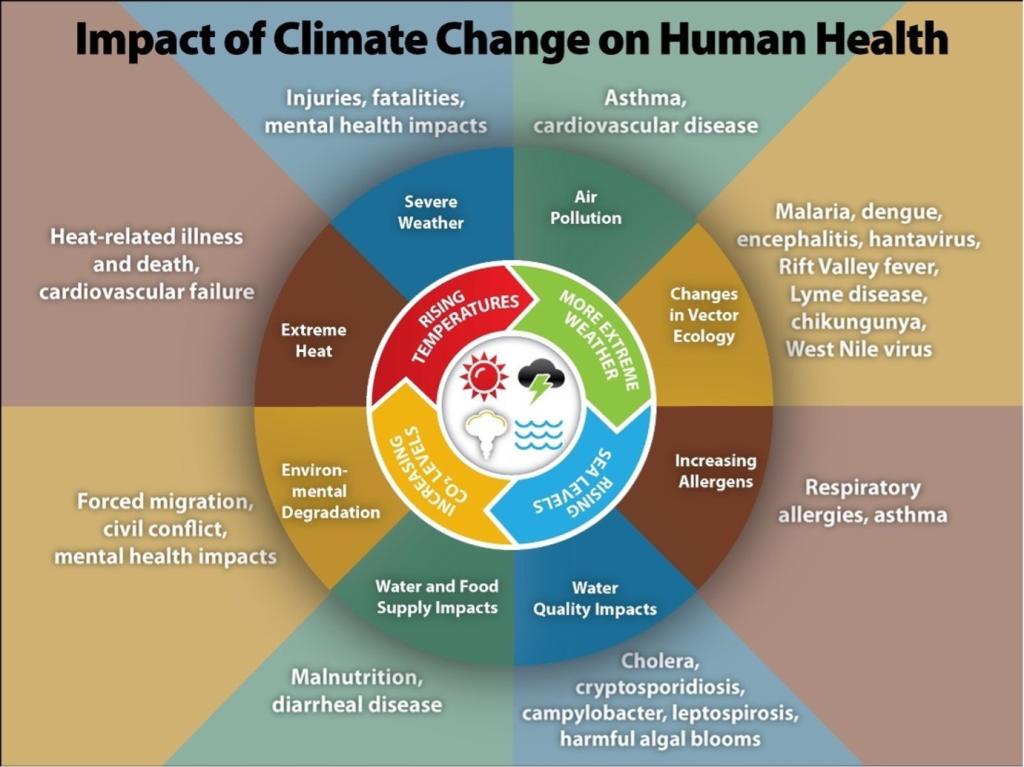Envetec Insight
The Rising Cost of Climate Change on Healthcare Systems
A Global Perspective
Climate change is no longer a distant threat; its impact on global health systems is already being felt. Rising costs, increased patient loads, and strained infrastructure are just some of the challenges healthcare providers face. From extreme weather events and air pollution to the spread of infectious diseases, the financial and operational pressures are mounting. This blog post explores the projected economic burden of climate change on healthcare in the UK, US, and Ireland, offering insights into the challenges and potential mitigation strategies.

(Source: US CDC, https://www.nature.com/articles/s41390-019-0654-7)
The Financial Strain on the NHS (UK)
The National Health Service (NHS) in England, a global leader in sustainability, has committed to net zero emissions. However, the financial burden of climate change remains a significant concern. According to NHS England’s Green Plan Guidance, heat-related mortalities alone are projected to cost £6.8 billion annually in the 2020s, escalating to £14.7 billion per year in the 2050s. Further climate-related healthcare costs include increased hospital admissions due to extreme heat and air pollution-related illnesses like asthma and cardiovascular diseases, flood damage to healthcare infrastructure, and added pressure on emergency services during heatwaves and cold spells. The NHS is tackling these challenges through a net zero roadmap, investing in sustainable procurement, decarbonising its fleet, and modernising its estates to reduce emissions and mitigate future costs. This innovative approach is now serving as a framework for other healthcare systems worldwide.
The Growing Burden on US Healthcare
The US healthcare system, already one of the most expensive globally, faces further cost increases due to climate change. The National Academy of Sciences estimates current annual healthcare expenses related to air pollution and extreme weather at $820 billion. This figure could surpass $1 trillion annually by 2050 due to factors such as increased cases of heatstroke, chronic respiratory conditions, the spread of vector-borne diseases like Lyme disease and West Nile virus, and damage to hospitals and patient displacement from more frequent and severe hurricanes, wildfires, and floods. While initiatives like the Inflation Reduction Act and the HHS Office of Climate Change and Health Equity aim to promote sustainability, the lack of federal-level climate resilience funding for hospitals remains a concern.
Climate Change Impacts on Ireland’s Healthcare System
Ireland’s health service (HSE) is also grappling with climate-driven pressures. A 2021 ESRI report projected that extreme weather events, including storms and flooding, could cost the Irish health system over €1 billion annually by 2050. Key concerns include increased hospital admissions for respiratory illnesses due to worsening air quality, coastal flooding impacting vital healthcare infrastructure, and rising medical supply chain costs due to global climate disruptions. Ireland’s Climate Action Plan outlines a health sector decarbonisation strategy, but hospitals remain vulnerable. Experts advocate for greater investment in hospital resilience, energy-efficient buildings, and circular economy initiatives.

(Source: WEF, https://www.carbonbrief.org/healthcare-in-worlds-largest-economies-accounts-for-4-of-global-emissions/)
Building a Resilient Healthcare Future: Global Solutions
While the financial burden of climate change on healthcare is undeniable, proactive investments in resilience and sustainability can significantly reduce long-term costs. Key strategies include adopting green energy in hospitals (solar, wind, and heat pump systems), sustainable healthcare waste management for lower emissions and increased recycling (including non-thermal waste treatment), climate-resilient infrastructure upgrades, and digital health innovations to minimise hospital visits and emissions.

Conclusion
As the climate crisis intensifies, healthcare systems must transition from reactive spending to preventative investment in climate resilience. Governments, hospitals, and private sector stakeholders must collaborate to prevent climate change from overwhelming global health systems.
Previous article
« The ROI of Sustainability: How Businesses Gain from Going Green
Next article